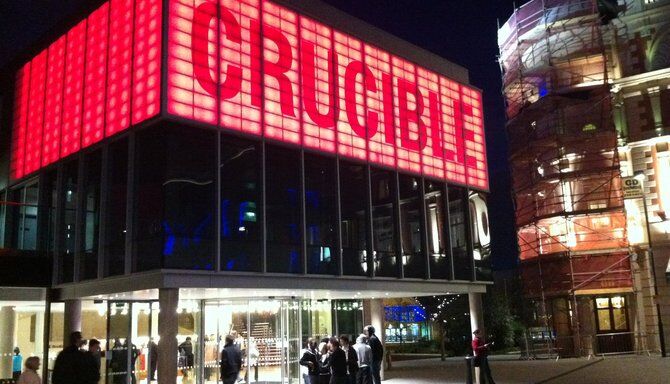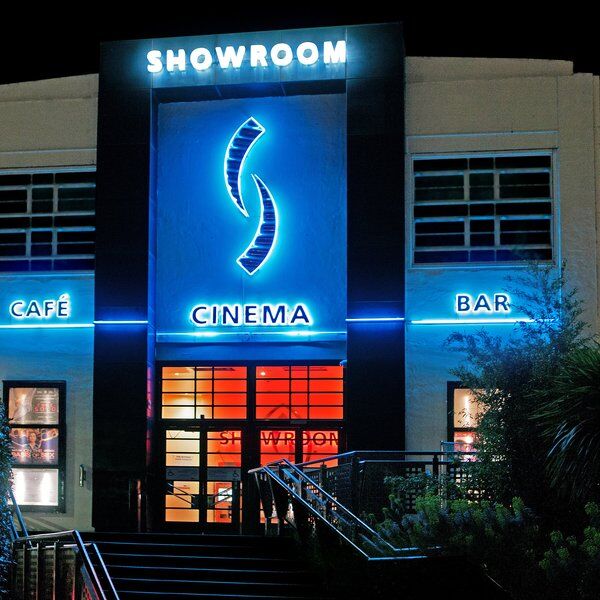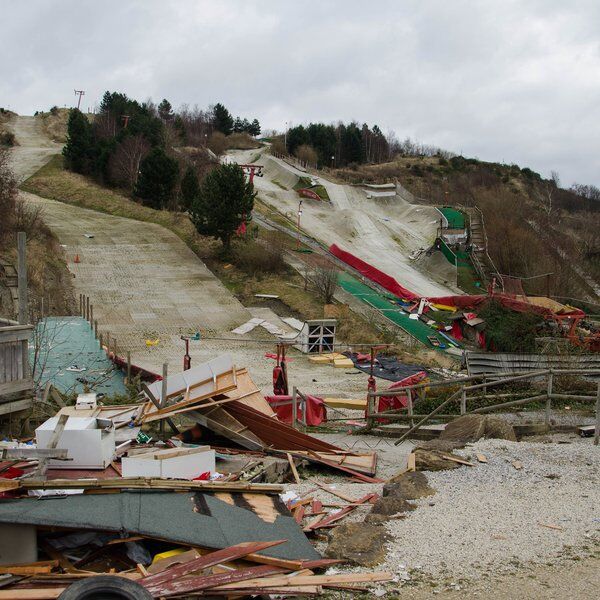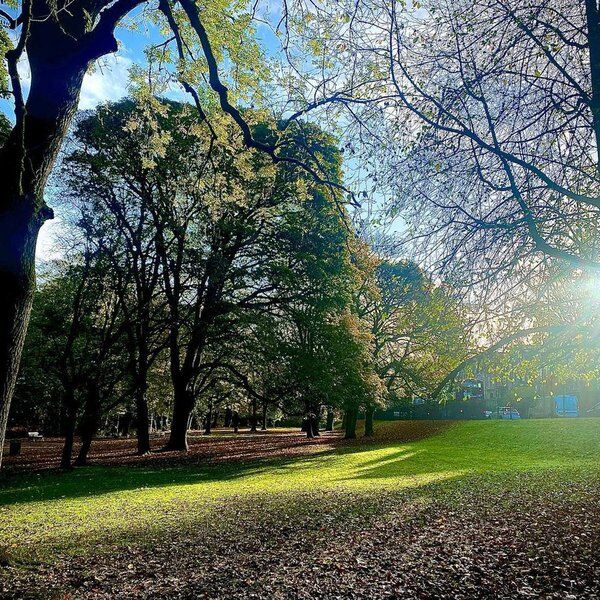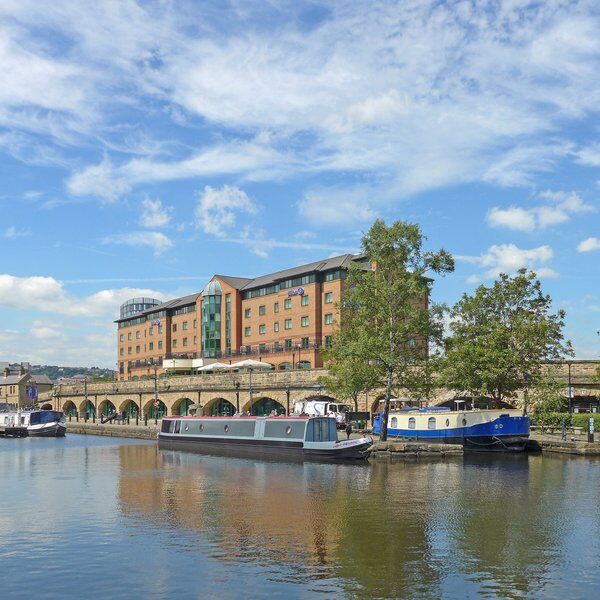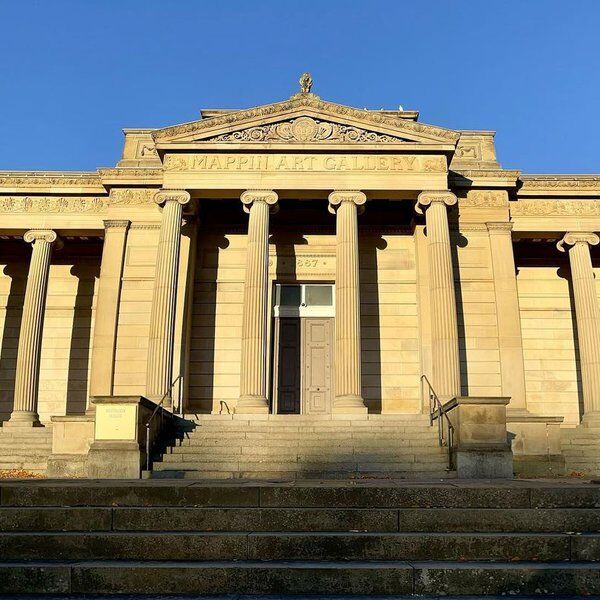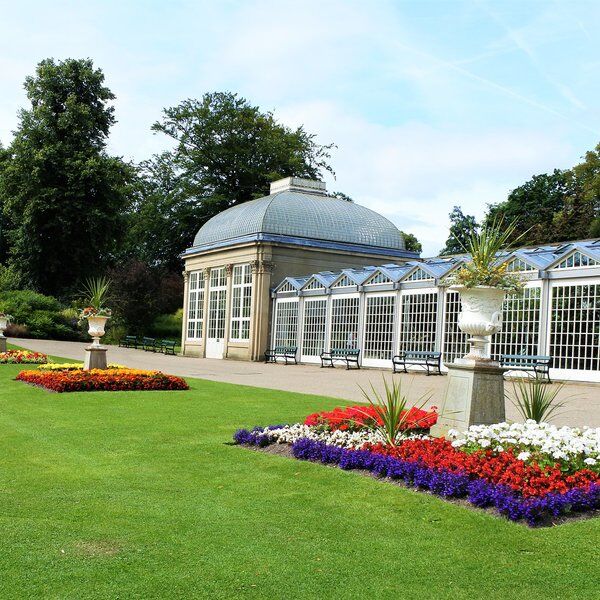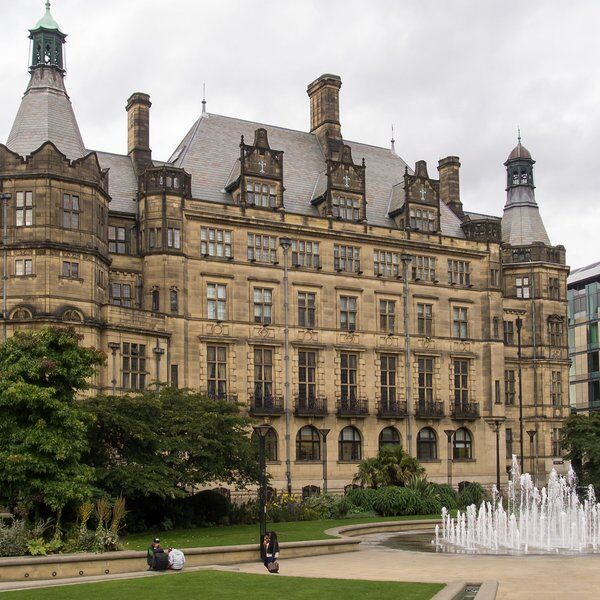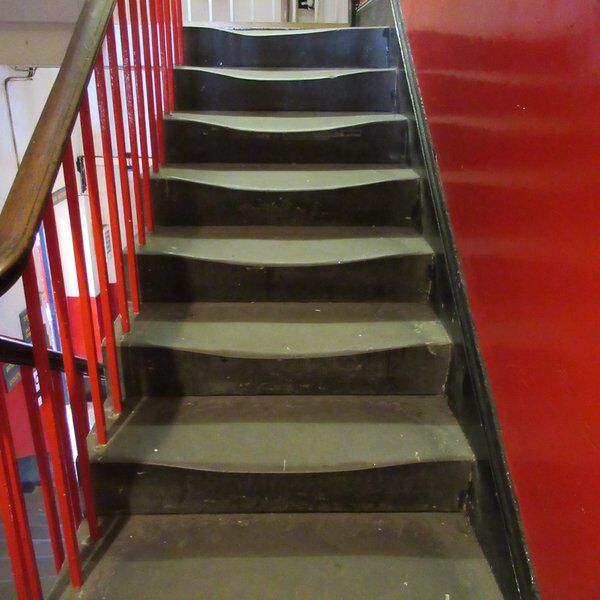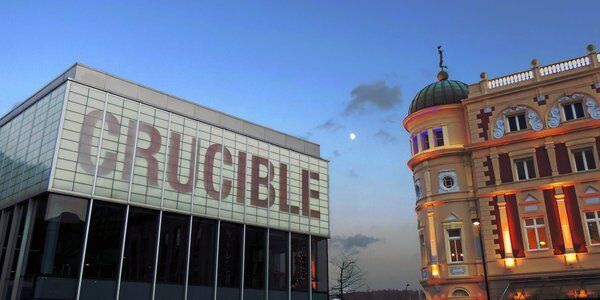
Discover the Crucible Theatre
The Crucible Theatre, or simply The Crucible, is a theatre in Sheffield, South Yorkshire, England, which opened in 1971. The theatre's name refers to crucible steel, which was developed in Sheffield in 1740 and drove the industrialisation of the city. Today, it regularly holds theatrical performances, has collaborated with Sheffield Hallam University for a short film production, and also, perhaps randomly, hosts the annual World Snooker Championship.
Sharing the building with the Crucible is the Tanya Moiseiwitsch Playhouse. In May 2022, plans were drawn up to build a new 3,000-seat venue nearby, now known as the Lyceum, with a bridge connecting the two buildings. Together these three venues in Sheffield's Tudor Square form the country's largest theatre complex outside of London. And with the Library Theatre and the Montgomery also nearby, they make for a thoroughly thespian corner of the city centre.
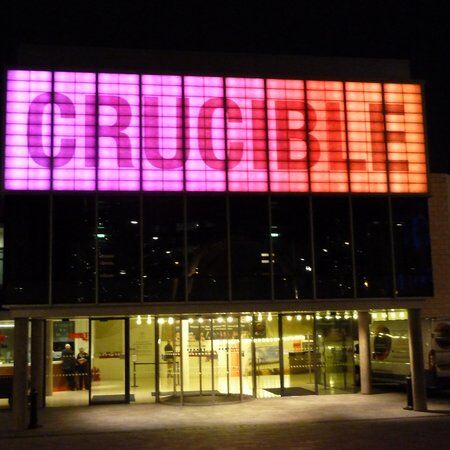
The History of the Crucible Theatre
Originally opened in 1971, the Crucible Theatre replaced the Sheffield Repertory Theatre, which was formerly located at the Sheffield Playhouse on Townhead Street. The Crucible was brought to life through the vision of founding artistic director Colin George, who recommended a thrust stage inspired by the designs of Sir Tyrone Guthrie.
The Crucible’s design was spearheaded by Tanya Moiseiwitsch, a designer involved in Guthrie's theatres, alongside architects Renton Howard Wood Levin. Constructed by M J Gleeson, the building began to take shape in 1969 and was completed in 1971.
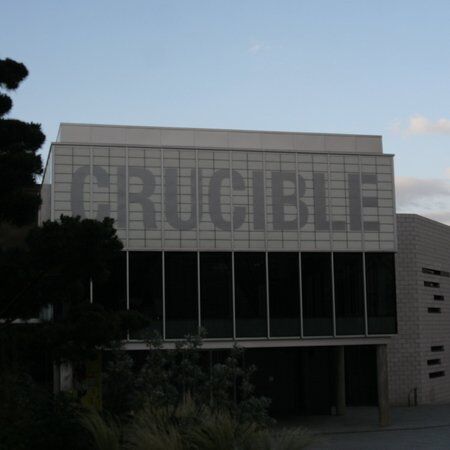
The Crucible Theatre’s Opening Night
In November 1971, the theatre held its opening night with a mix of performances to demonstrate the theatre’s capacity to host a range of productions. Productions included “Fanfare”, an improvised scene performed by children and Anton Chekhov's "Swansong" featuring Sir Ian McKellen and Edward Petherbridge. The grand finale was a lively performance from a Sheffield brass band.
Today, for young theatre-goers aged 16 to 26, the Live for Five scheme gives younger viewers the opportunity to see select performances at an affordable price, with two tickets available for just five pounds each.
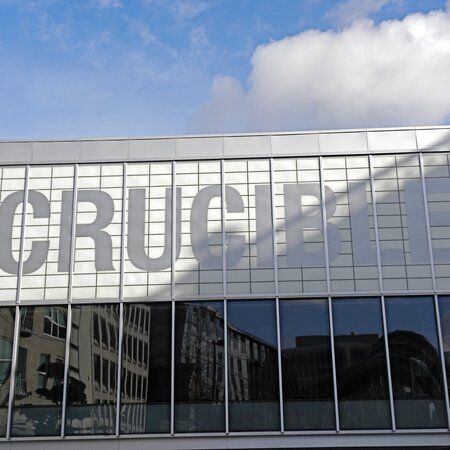
Creating the Crucible Theatre
Designed to create an intimate connection between the performers and the viewers, the Crucible is polygonal in shape and has a thrust stage, surrounded by seats on three sides. This layout places the audience in the middle of the action, ensuring that no audience member, seated in any of its 980 seats, is ever more than 22 metres away from the stage.
The stage also has a flexible design, which has been adapted over the years to accommodate various forms of entertainment. These forms extend to dance and musical performances, classical and modern plays, and touring productions. The intimate setup results in some of the most immersive and atmospheric theatrical experiences imaginable, confirmed by its winning of the Barclays Theatre of the Year Award in 2001.
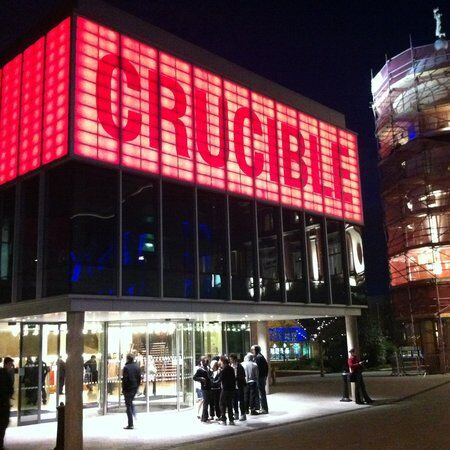
Renovating the Crucible Theatre
Between 2007 and late 2009, the Crucible underwent a £15 million refurbishment. During this period, it opened exclusively for the 2008 and 2009 World Snooker Championships, continuing to honour its long-standing commitment to the event. The theatre officially reopened on 11 February 2010 with Henrik Ibsen's "An Enemy of the People," followed by an official reopening ceremony by Prince Edward on 18 February 2010. Since the renovations and grand reopening, the Crucible Theatre has become an iconic landmark and Grade II listed building.
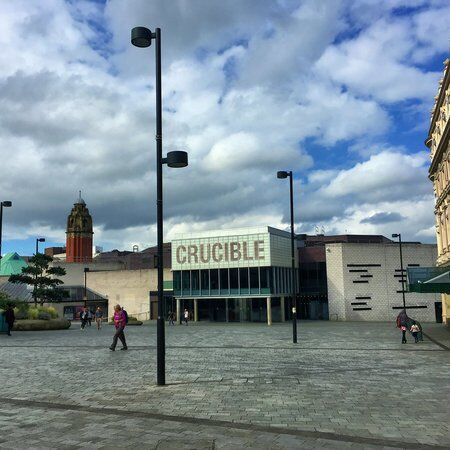
Excellence at the Crucible Theatre
Over the years the Crucible has garnered a reputation for its dedication to modern playwrights including Michael Frayn, Brian Friel, and Harold Pinter, whose poem “Laughter,” was written specifically for the Crucible in 2007. These acclaimed writers have run plays, workshops, and lectures over dedicated seasons at the theatre.
However, while the Crucible Theatre is celebrated for its focus on modern theatre, it does also recognise the classics, particularly William Shakespeare’s masterpieces. In 2011, it ran a highly popular rendition of "Othello," featuring actors Dominic West and Clarke Peters from "The Wire”.
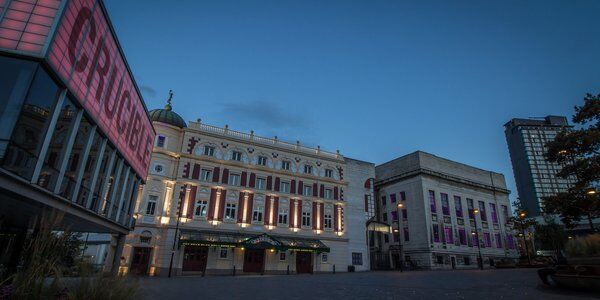
The Crucible Theatre and the World Snooker Championship
But the Crucible Theatre doesn’t just host theatrical productions. Since 1977, it has held the annual World Snooker Championships. Each year, players and spectators flock to the historic venue to witness moments of sporting brilliance in the intimate auditorium. Despite its modest exterior, the Crucible holds a significant place in the hearts of snooker fans worldwide.
Beyond snooker, the Crucible also hosts other indoor sports championships. The World Women's Snooker Championship was held between 1998 and 2003, but eventually discontinued due to financial challenges. There were also table tennis and squash championships over the years.
In May 2022, plans were drawn up to improve the World Snooker Championship experience by constructing a new venue adjacent to the iconic Crucible Theatre. The proposed venue was designed by architect James Burland, known for his work on the City of Manchester Stadium, to accommodate up to 3,000 spectators. In addition the building will house a snooker museum. Snooker promoter Barry Hearn expressed the importance of maintaining the Crucible's legacy at the new venue.
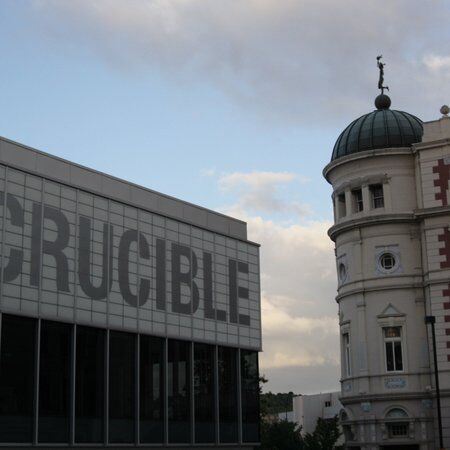
Interested in finding more places like this? Try one of our Sheffield Treasure Hunts - untangle cryptic clues as a team, as you are taken on a journey to the most unique, unusual and bizarre corners of England.
